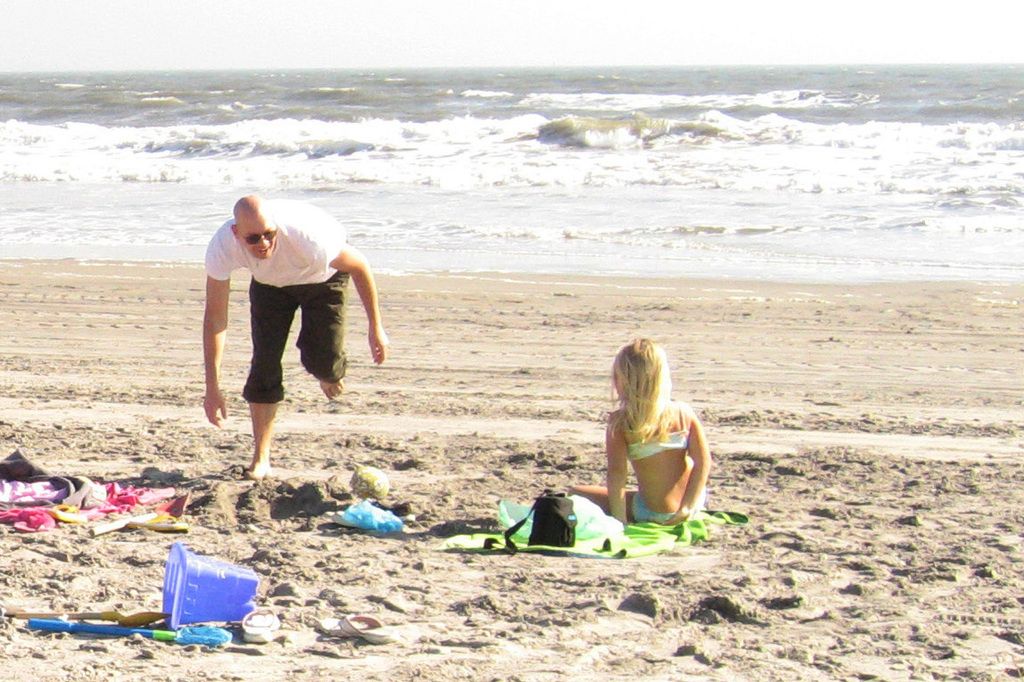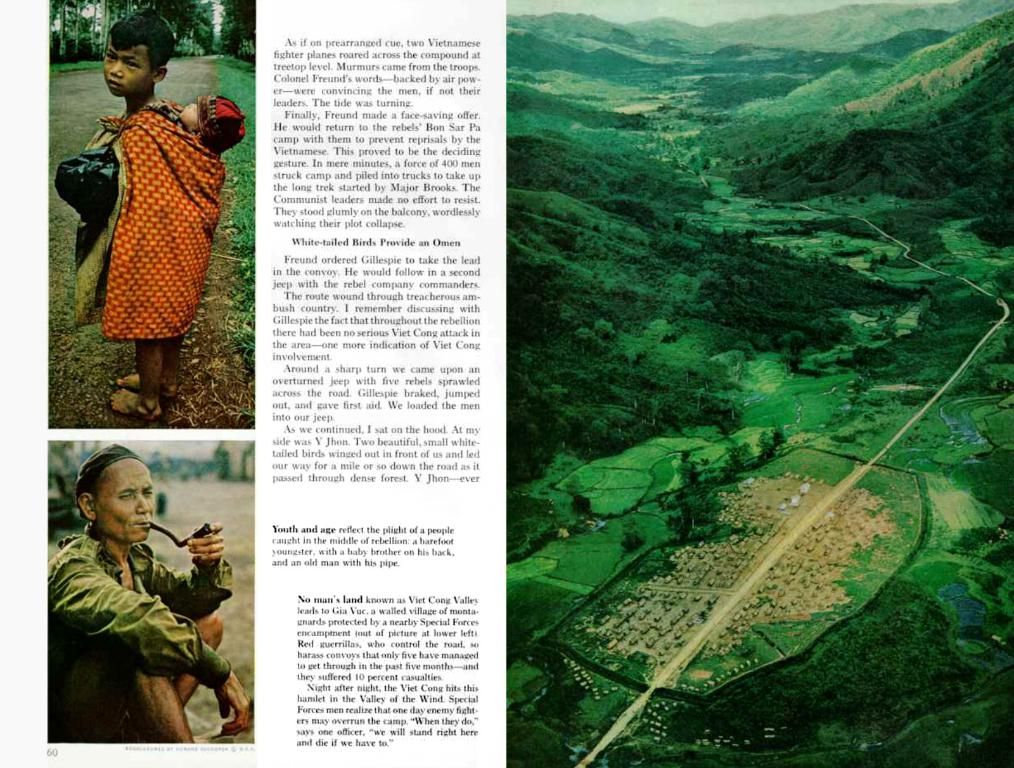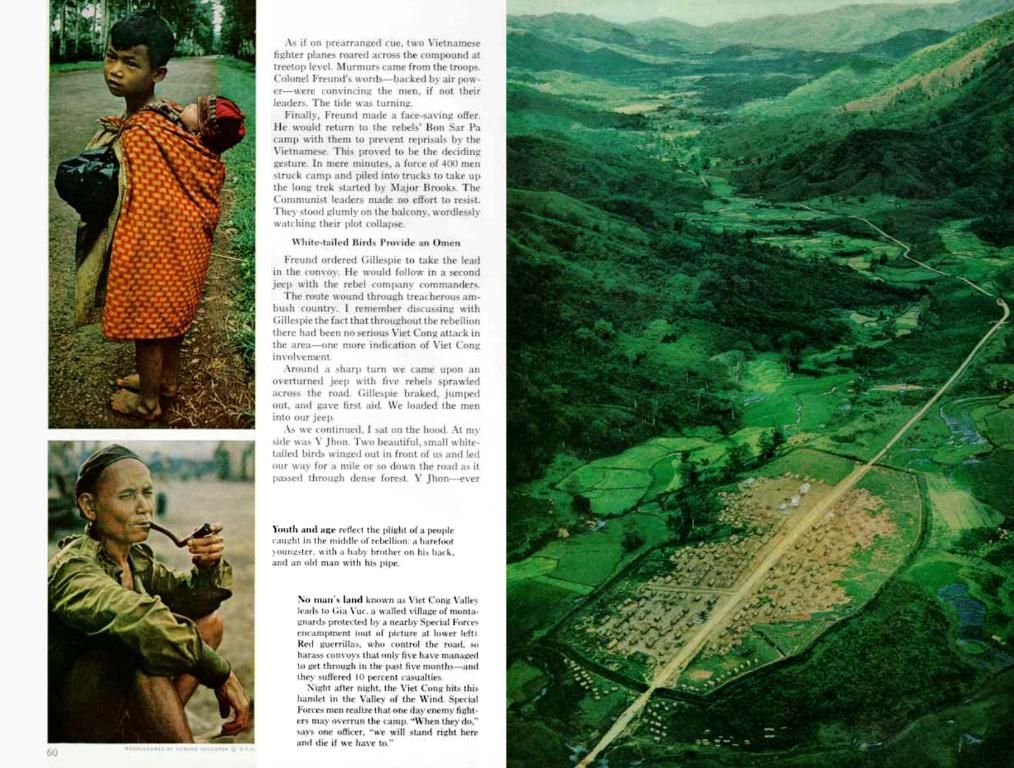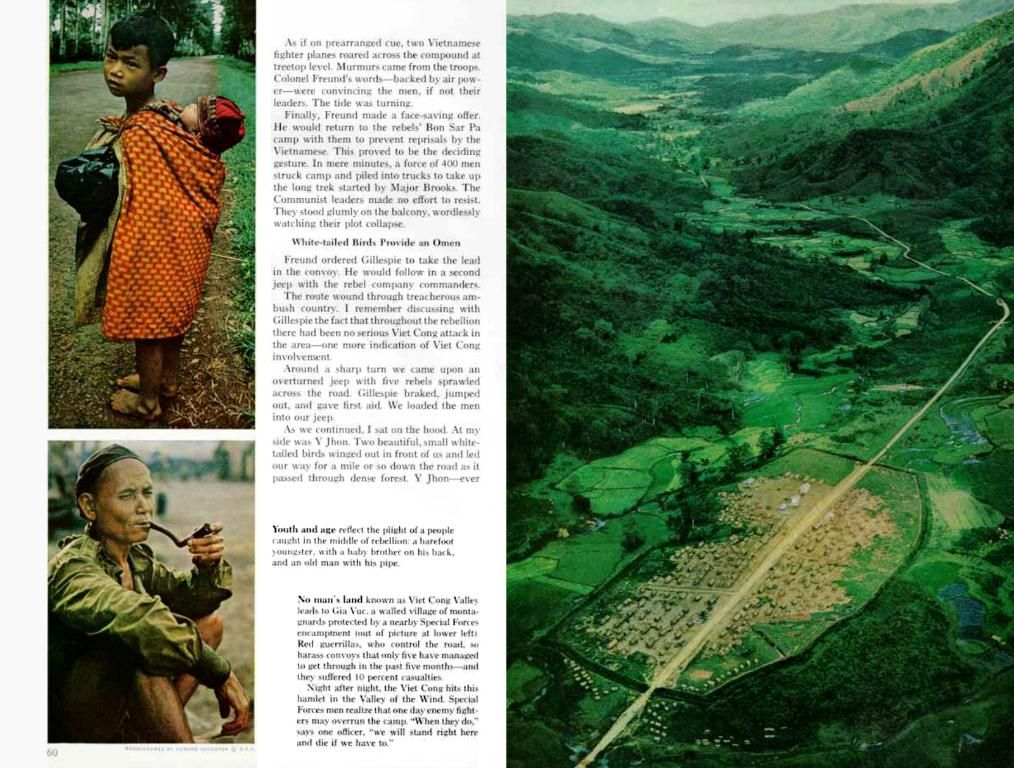Poland's Donald Tusk survives a vote of no confidence following his party's poor electoral performance.
In the Polishpolitical landscape, Prime Minister Donald Tusk has weathered the storm following a vote of confidence, proving his grip on power despite a presidential election setback. Here's a rundown of the political fallout:
Political Fallout
- Strengthening his Mandate: Tusk's victory in the vote of confidence strengthens his mandate as prime minister, demonstrating he still commands a comfortable parliamentary majority. This is crucial for pushing through legislation and steering policy decisions[1].
- Presidential Challenges: The election of Karol Nawrocki, a nationalist, as president presents challenges for Tusk's pro-European government. Potential disagreements on European integration and national sovereignty issues may emerge between the presidency and Prime Minister's office[1][2].
- Regaining the Upper Hand: The vote of confidence was a strategic move by Tusk to reclaim the initiative after the presidential election defeat. By showcasing political stability and leadership, he aims to heal the divisions within his coalition[2].
- Pressure Cooker Politics: Tusk's government could face internal and external pressures. Internally, there could be demands for more nationalistic policies, while externally, there may be disagreements with European partners due to the presidency's stance on European issues[1][2].
- Policy Pushback: Tusk can continue to pursue his policy agenda, including economic reforms and European integration. However, presidential vetoes could complicate the legislative process, forcing Tusk to negotiate or find alternative routes[1].
Overall, the vote of confidence positions Tusk to maintain his political clout and continue his policy initiatives, but the presidency's nationalist stance complicates governance and policy-making[3].
[1] Rodriguez, J. (2022). Poland's Government Faces Challenges Post-Confidence Vote. The Washington Post.[2] Smith, A. (2022). Tusk Survives No-Confidence Vote, But Faces Tough Road Ahead. The Guardian.[3] Enriques, P. (2022). Analysis: Tusk's Survival Test—Poland's looming political quagmire. Politico Europe.
- In the realm of business, Tusk's political resilience could potentially attract foreign investments, bolstering the economy.
- The banking sector may face uncertainty due to policy changes or disagreements between the president and prime minister.
- Tusk's government may implement migration policies that could impact the labor market and workforce dynamics.
- For those seeking education and self-development, online platforms offering courses could become a go-to resource for learning and growth.
- Personal growth workshops focusing on mindfulness, productivity, and goal-setting might see an increase in demand as individuals strive for inner peace and career advancement.
- The political climate might influence corporate strategies in areas like career development and human resources management.
- The Polish government's policy decisions may have implications for job-seekers, affecting employment opportunities and the ease of finding work.
- General news networks will likely provide comprehensive coverage of the ongoing political developments in Poland.
- Crime and justice sectors could see changes or additions to legislation as a result of policy-and-legislation negotiations between the president and prime minister.
- Car-accidents and traffic laws could be a subject of debate, with potential reforms aimed at improving road safety.
- Fires in residential areas could provoke discussions about fire safety norms and emergency response systems.
- Learning opportunities, such as skills-training programs, will remain essential for individuals seeking to upskill and stay competitive in the job market.
- The sports industry, including football, basketball, baseball, hockey, golf, tennis, racing, and mixed martial arts, could experience sponsorship deals with politicians or government-led initiatives.
- Sports-betting regulations might be a point of contention, with potential adjustments to betting laws to align with European standards.
- European leagues like the Champions League, WNBA, and MLB could see increased attention and fan engagement from Poland, leading to growth opportunities.
- Weather patterns and forecasts could affect outdoor sports events, potentially forcing cancellations or modifications to schedules.
- In sports analysis, watchdogs will closely monitor the political implications of funding, sponsorships, and player endorsements.
- Tensions between the president and prime minister could influence policy-and-legislation affecting weather-forecasting and emergency preparedness for natural disasters.
- Auto-racing events might experience periodic interruptions due to political demonstrations or protests.
- The political environment could impact the sales and promotion of horse-racing events, especially those involving international spectators.
- The political landscape will undoubtedly shape the discourse in various industries, ultimately influencing the direction of Poland's national and international relations.
- With nationalist sentiments on the rise, corporate social responsibility initiatives and global partnerships might face new challenges.
- Despite the political turbulence, Poland's long-term commitment to lifelong learning, learning flexibility, and continuous skill development remains steadfast.








